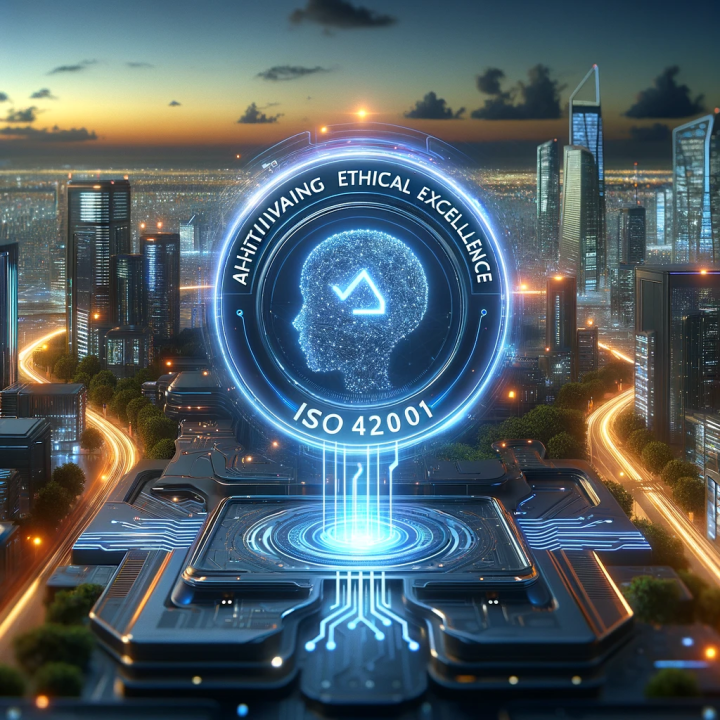The Rise of Generative AI & Its Limitless Potential
Artificial Intelligence (AI) has captivated the world, and our first encounter with its power has likely been through ChatGPT when it was first released on 30th November 2022. This remarkable tool acquired 100 Million Users in less than two months, the fastest Sign-Up Rate ever witnessed, surpassing even TikTok’s meteoric rise. The potential of AI is truly limitless, laying the foundation for the Fifth Industrial Revolution. Like ChatGPT, AI Enables seamless Human-Machine Interfaces, empowering us to work more accurately, efficiently across industries.
At the heart of this revolution lies Generative Pre-Trained Transformer (GPT), the AI Technology Powering ChatGPT. This powerful large Language Model can understand and respond like a human, thanks to its Pre-Training on Massive Datasets. GPT enables computers to Comprehend Human Language in a way that was once unimaginable, simulating Human-Like Responses and opening up new realms of possibilities.
The Need for AI Management & ISO/IEC 42001:2023:
As the Adoption of AI continues to accelerate, the need for a comprehensive and globally recognised Standard for AI Management Systems has become paramount. While existing Frameworks & Guidelines (eg. NIST CSP 2.0, COBIT 2019, ISO 27001:2022) provide Guidance for Managing Systemic Application Inputs, Processes & Data Outputs, they fall short in addressing the unique challenges posed by evolving AI Systems.
AI Applications are dynamic and constantly evolving, with the Potential to Produce Creative, Unexpected and sometimes Concerning Outputs, even when Presented with the same input. To address this challenge, the International Organisation for Standardisation / International Electrotechnical Commission has published ISO/IEC 42001:2023, a Comprehensive Standard that Provides Guidelines for Implementing AI Management Systems (AIMS). This standard emerges as the ultimate choice for organisations seeking to Implement AI Responsibly, Ethically, and with Utmost Transparency.
The Holistic Approach of ISO/IEC 42001:2023:
Like other ISO Standards, ISO/IEC 42001 takes a Holistic Approach to AI Governance, addressing not only the technical aspects but also the Strategic, Ethical & Regulatory Considerations. Unlike Narrow Frameworks that focus solely on specific AI Applications or Sectors, this Standard provides Comprehensive Guidelines Applicable to organisations of all sizes and across various Industries.
One of the Key Advantages of ISO/IEC 42001 is its Alignment with Harmonised Structure used in other ISO Management System Standards (eg ISO 27001). This common approach Facilitates Seamless Integration with Existing Standards related to Quality, Safety, Privacy & Information Security. It provides a Structured Framework for Managing the Entire AI Application Lifecycle, enabling organisations to leverage their existing Management System Frameworks, ensuring Consistency & Efficiency.
Ethical Considerations & Key Controls:
Ethical Considerations are a New Dimension introduced in ISO/IEC 42001, required throughout the entire AI Lifecycle. A proper Governance Structure can demonstrate the Management Team’s accountability and commitment to Deploying AI responsibly. Management Oversight should include elements such as Security, Safety, Fairness, Transparency, Accountability, Reliability, Robustness, Privacy, Accessibility & Data Quality.
Key Controls Outlined in ISO/IEC 42001 include:
- Explainable AI Models
- Eminently Fair & Thoroughly Tested AI Algorithms
- Diverse & Representative Training Data
- Ensuring Ethical & Socially Responsible Deployment
- Backup Procedure when AI Fails
Under this Framework, organisations can Embrace Innovation Responsibly while Mitigating Risks & Addressing Ethical Concerns.
Alignment with EU AI Act:
The EU AI Act represents the first AI-Specific Legal Framework, Addressing the Risks & Deployment Requirements of AI Systems. It Outlines Obligations for organisations, such as:
- Risk Management (Article 9)
Record-Keeping (Article 12)
- Appointing Compliance, Risk, Security Oversight Officers (Article 17)
- Transparency (Article 52), and
- Incident Reporting (Article 62).
ISO/IEC 42001 provides a solid Framework to help organisations fulfil the EU AI Act Principles while Managing Risks Effectively.
Conclusion
As the world navigates the Challenges & Opportunities presented by AI, the ISO/IEC 42001 Standard emerges as the Ultimate Solution for organisations seeking to establish a robust AI Management System. By embracing this Comprehensive Standard, organisations can ensure Transparent, Reliable, Secure & Responsible AI Implementation, fostering trust among Stakeholders and positioning themselves as Leaders in the AI Revolution. With ISO/IEC 42001, organisations can harness the limitless potential of AI while Upholding Ethical Principles & Maintaining Accountability, paving the way for a future where Human Ingenuity & Artificial Intelligence Coexist Harmoniously.





